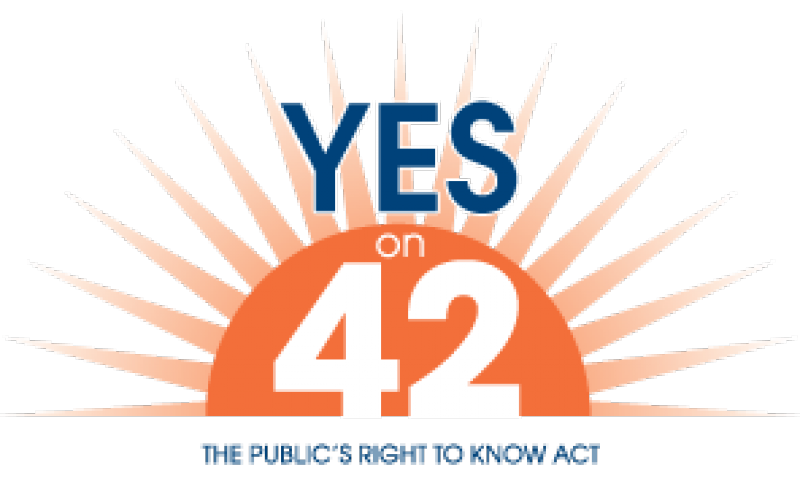With California’s primary election less than a month away, and absentee ballots already being sent out, voters will soon have a chance to make sure open government is a permanent feature of the state.
The original public records act became law in 1968, and the related Brown Act has been on the books since 1953. However, both exist as simply laws, and have been open to tampering and adjustments, as nearly happened last year during the budget negotiations. The Brown act, named for Assemblyman Ralph Brown (not the current or past Governor) mandates open and announced meetings for local governments to avoid secret or under-the-table negotiations. The Public Records Act allows for inspection and disclosure of governmental records by the people and press, intended to safeguard the accountability of the government to the people. Proposition 42 on the upcoming ballot will enshrine these laws into the state constitution, essentially “carving them in stone”, and ensuring the future of open public records and public meetings remain in place for the citizens of California.
In last year’s budgetary negotiations between the Governor and the Legislature, it was proposed that the state funding for compliance to the acts would be cut, while allowing the local agencies to decide whether or not to voluntarily answer requests. The optional compliance was looked on as a way to take the burden off local governments as a “give back” for taking away funding. However, the press and others in the public saw it as basically gutting the law, and potentially removing access to crucial information. Due to the outcry, the measures were dropped, and the Public Records act remained in place and in force.
However, the goal of cutting funding was still an issue, and State Senators Mark Leno and Darrell Steinberg co-authored State Constitutional Amendment 3, which would both place compliance with the acts in the state constitution, and take away the state’s obligation to fund the process.
Leno stated on September 10th, “Today’s action by the Assembly allows California voters to debate the importance of strengthening the state’s most critical open government laws by requiring compliance in the Constitution. If approved by voters, SCA 3 would permanently uphold and protect a person’s right to inspect public records and attend public meetings, which are principles we all respect and treasure. The state should not have to provide a fiscal incentive to local governments so that they comply with these important transparency laws.”
The amendment has strong bi-partisan support in both the Senate and Assembly. Jim Ewert of the California Newspaper Publishers Association said “CNPA thanks Senator Leno and Senator Steinberg for introducing SCA 3, which is the ultimate solution to protect against the persistent threat to the public’s right to know, posed by the reimbursable mandate issue. If approved by voters in June, SCA 3 will fortify the public’s right to access the meetings and records of government agencies as a bedrock principle of democratic government by enshrining it in California’s Constitution.”
Proposition 42 also has broad support from a diverse collection of organizations and people, including the League of Women Voters of California, Common Cause, teachers, nurses, and firefighter organizations, taxpayer advocates, and newspaper editorial boards across the state. Both the state Democratic and Republican parties have endorsed it as well, along with Governor Brown, the Howard Jarvis Taxpayers association, the California Labor Federation, and more. There is no organized opposition at this time.
Read More:
League of Women Voters Smart Voter













